From career breakthroughs to professional milestones, explore how Mark Carney made an impact.
Mark Carney is a Canadian politician and economist, currently serving as the 24th Prime Minister of Canada since 2025. He is also the leader of the Liberal Party and the Member of Parliament for Nepean, also since 2025. Prior to his role in politics, Carney was the Governor of the Bank of Canada from 2008 to 2013 and subsequently served as the Governor of the Bank of England from 2013 to 2020, marking a distinguished career in economics and finance before entering the political arena.
1998: Involvement in Russian financial crisis
In 1998, Mark Carney was involved in Goldman Sachs' work related to the Russian financial crisis.
July 2008: European Central Bank rate increase
In July 2008, while the European Central Bank delivered a rate increase, Mark Carney anticipated the leveraged-loan crisis would trigger global financial contagion.
July 2010: Chairman of the Bank for International Settlements' Committee
From July 2010, Mark Carney was chairman of the Bank for International Settlements' Committee on the Global Financial System.
November 4, 2011: Named Chairman of the Financial Stability Board
On November 4, 2011, Mark Carney was named chairman of the Basel-based Financial Stability Board.
2011: Attendance at Bilderberg Group meeting
In 2011, Mark Carney attended the annual meetings of the Bilderberg Group.
2011: Appointment as chair of the Financial Stability Board
In 2011, Mark Carney was appointed as chair of the Financial Stability Board, a position he held for two terms.
January 2012: First Press Conference as Chairman of FSB
In January 2012, Mark Carney laid out his key priorities for the Financial Stability Board at his first press conference as Chairman.
January 2012: End of term as Chairman of the Bank for International Settlements' Committee
Mark Carney's term as chairman of the Bank for International Settlements' Committee on the Global Financial System ended in January 2012.
2012: Attendance at Bilderberg Group meeting
In 2012, Mark Carney attended the annual meetings of the Bilderberg Group.
2013: Declining Liberal Party Leadership Bid
In 2013, Mark Carney was approached by the Liberal Party to run for leader in their leadership election but declined to do so.
May 2014: Warning about UK housing market risk
In May 2014, Mark Carney warned that the UK's heated housing market posed the biggest risk to financial stability. He considered advising on the Help to Buy mortgage scheme, concerned it contributed to housing inflation. Carney attributed the lack of affordable UK housing to limited supply, noting Canada built twice as many homes with half the population. He also stated that foreign cash buyers in London were beyond his control but didn't pose a significant risk to the rest of the country. The Bank was monitoring property prices and large-value mortgages to prevent debt destabilizing the economy.
November 2014: Reappointed as Chairman of Financial Stability Board
In November 2014, Mark Carney was reappointed to a second term as chairman of the Financial Stability Board.
2014: Warning about Scottish independence referendum
In 2014, Mark Carney warned that if the Scottish independence referendum was successful, the new country would likely not be able to continue using the pound sterling without ceding some powers to the UK.
2015: Changes to Interest Rate Meeting Schedule
In 2015, Mark Carney changed the number of yearly interest rate meetings from 12 to 8 and mandated that the minutes be published during the announcements.
2015: Liberal Party mandate
In 2025, Mark Carney led the Liberal Party to a fourth consecutive mandate since 2015, while also winning a seat in Parliament for the first time.
2016: Brexit Referendum Warnings and Actions
In 2016, before the Brexit referendum, Mark Carney warned that leaving the European Union could cause a recession. Following the result and the resignation of Prime Minister David Cameron, he assured the public that the financial system would operate normally. Subsequently, the bank halved interest rates from 0.5% to 0.25% and restarted quantitative easing.
September 2018: Extension of Term as Governor
In September 2018, Mark Carney agreed to an additional seven-month extension to his term as Governor of the Bank of England, to "support a smooth exit" from the EU, adding to his earlier agreement to extend his term by one year at the urging of Prime Minister Theresa May and Chancellor of the Exchequer Philip Hammond.
September 2018: Extension as Governor of Bank of England Confirmed
In September 2018, then-Chancellor of the Exchequer Philip Hammond confirmed that Mark Carney would remain as the Governor of the Bank of England until January 2020. This extension was intended to ensure a smooth transition following the UK's planned departure from the EU in March 2019.
2018: Planned end of term as Governor of Bank of England
Although the usual term for governor is eight years, Carney indicated in 2012 that he only intended to serve for five years and stand down in 2018.
2018: End of term as chair of the Financial Stability Board
In 2018, Mark Carney's second term as chairman of the Financial Stability Board ended.
February 2019: Remarks on Globalization and Brexit
In February 2019, Mark Carney shared a less pessimistic view on Brexit, discussing the global economy. He suggested that globalization had created imbalances of democracy and sovereignty, and considered Brexit as the first test of a new global order, potentially demonstrating how to broaden the advantages of openness while improving democratic accountability.
August 23, 2019: Speech at Jackson Hole Economic Symposium
On August 23, 2019, Mark Carney delivered a speech at the Federal Reserve Bank of Kansas City's annual Jackson Hole Economic Symposium. In his speech, Carney addressed the challenges for monetary policy within the international monetary and financial system, noting the destabilizing effects of the widespread use of the U.S. dollar in trade. He suggested a potential role for digital currency areas in redefining the international monetary system.
2019: Attendance at Bilderberg Group meeting
In 2019, Mark Carney attended the annual meetings of the Bilderberg Group.
2019: Appointment as UN Special Envoy on Climate Change
In 2019, Mark Carney was appointed as a United Nations Special Envoy on Climate Change.
2019: Special Envoy on Climate Action and Finance
In 2019, Mark Carney was appointed by the United Nations Secretary-General António Guterres to be his Special Envoy on Climate Action and Finance.
January 2020: Appointment as Finance Advisor for COP26
In January 2020, UK Prime Minister Boris Johnson appointed Mark Carney to the position of finance advisor for the UK presidency of the COP26 United Nations Climate Change conference in Glasgow, originally scheduled for November 2020.
October 2020: Vice Chairman at Brookfield Asset Management
In October 2020, Mark Carney became vice chairman at Brookfield Asset Management (BAM), where he led the firm's environmental, social and governance (ESG) and impact fund investment strategy.
December 2, 2020: Reith Lecture on Market Sentiments
On December 2, 2020, Mark Carney delivered the first of his four Reith Lectures for the BBC. In this lecture, titled "How We Get What We Value – From Moral to Market Sentiments", Carney discussed how society had shifted from valuing human worth to emphasizing financial value.
December 3, 2020: Promotion of Voluntary Carbon Offset Market
In a December 3, 2020, Financial Times article, Mark Carney stated that the voluntary global carbon offset market was an "imperative" to help reduce emissions.
2020: Remarks on the Green Transition
In 2020, Mark Carney described the green transition as "the greatest commercial opportunity of our time".
2020: Advising Justin Trudeau on COVID-19 Economic Response
In 2020, Mark Carney served as an informal advisor to Canadian Prime Minister Justin Trudeau, advising on the government's COVID-19 economic response. Carney reportedly advised Trudeau on Canada's response to the COVID-19 pandemic, with Trudeau looking to Carney to help Canada get out of its recession. This led to speculation about Carney potentially becoming Minister of Finance or even Prime Minister if Trudeau resigned.
February 2021: Joining Stripe's Board
In February 2021, Mark Carney joined the board of fintech company Stripe.
February 2021: Retraction of Carbon Neutral Claim
In February 2021, Mark Carney retracted an earlier claim that the US$600 billion Brookfield Asset Management portfolio was carbon neutral. The claim, based on Brookfield's renewable energy portfolio, was criticized as an accounting trick because avoided emissions do not counteract emissions from investments in fossil fuels.
March 2021: Statement on Economic Opportunity in Sustainable Economy
In March 2021, Mark Carney stated that Canada has a "huge economic opportunity" in transitioning to a sustainable economy with reduced carbon emissions, highlighting the need to heed scientists' warnings about climate change.
November 2021: Launch of Glasgow Financial Alliance for Net Zero (GFANZ)
In November 2021, Mark Carney helped launch the Glasgow Financial Alliance for Net Zero (GFANZ) at COP26 in Glasgow and acts as the group's co-chair.
December 2021: Potential Launch of Pilot Market for Voluntary Carbon Offsets
In December 2021, according to a Financial Times article, London was expected to host the "new pilot market for voluntary carbon offsets" that Carney said could be "set up".
2021: Speculation and Ruling Out Canadian Federal Election Candidacy
In 2021, Mark Carney spoke at the Liberal Party policy convention, declaring his support of the party. Later that year, he ruled himself out as a candidate in the then-speculated 2021 Canadian federal election, owing to his COP26 commitments.
2021: Elected to Harvard University's Board of Overseers
In 2021, Mark Carney was elected to Harvard University's Board of Overseers.
2021: Publication of Value(s): Building a Better World for All
In 2021, Mark Carney's first book, Value(s): Building a Better World for All, was published by Signal Books.
2022: Advisor to Watershed
From 2022 to January 2025, Mark Carney served as an advisor to Watershed, a climate tech company founded by Stripe alumni, that proposes to be "the platform companies need to succeed in the climate economy".
August 2023: Chair of Bloomberg L.P. Board of Directors
In August 2023, Michael Bloomberg named Mark Carney as chair of the new board of directors for Bloomberg L.P. as part of a broader reshuffle of the company's leadership.
2023: Co-chair of the World Bank's private sector investment lab
In 2023, Mark Carney became co-chair of the World Bank's private sector investment lab.
March 2024: Advocacy for Low-Carbon Housing Policy
In a March 2024 op-ed in The Globe and Mail, Mark Carney advocated for a low-carbon housing policy that favored densification over urban sprawl. He proposed making it easier for homebuilders to densify by removing unit maxima, parking minima, and allowing taller buildings near transit lines.
September 9, 2024: Appointment to Liberal Party Task Force
On September 9, 2024, Justin Trudeau named Mark Carney to chair the Liberal Party of Canada's leader's Task Force on Economic Growth. His name was briefly mentioned as a possible candidate for finance minister upon the resignation of Chrystia Freeland.
September 2024: Special Advisor and Chair of Liberal Task Force
In September 2024, Mark Carney became a special adviser and chair of the Liberal task force on economic growth. Shortly after, it was revealed Brookfield Asset Management solicited the federal government for CA$10 billion in funds as part of a $50 billion Canada-only asset fund.
2024: Involvement in British National Wealth Fund Taskforce
Following Labour's victory in the 2024 election, Mark Carney was part of a taskforce which saw the creation of a British National Wealth Fund.
2024: Chair of the Liberal Party's Task Force on Economic Growth
In 2024, Mark Carney was appointed by Justin Trudeau as chair of the Liberal Party's Task Force on Economic Growth.
January 2025: Advisor to Watershed
From 2022 to January 2025, Mark Carney served as an advisor to Watershed, a climate tech company founded by Stripe alumni, that proposes to be "the platform companies need to succeed in the climate economy".
January 2025: Interview on Canada's Emissions
In a January 2025 interview with Jon Stewart, Mark Carney attributed much of Canada's emissions to the oil industry. He proposed replacing the consumer carbon tax with an incentive program for green choices and introducing a "carbon border-adjustment" for polluting imports.
January 16, 2025: Announcement of Liberal Party Leadership Candidacy
On January 16, 2025, Mark Carney officially announced that he was running in the 2025 Liberal Party of Canada leadership election. He also stepped down from all executive, board, and advisory positions to focus on his campaign.
February 2025: Explanation of Decision to Decline Minister of Finance Offer
In a February 2025 interview with the CBC, Mark Carney explained why he declined Stephen Harper's offer to join the Conservative government as minister of finance in 2012. He felt it "wasn't appropriate" to move directly from being governor to elective politics.
March 14, 2025: Swearing in as Prime Minister of Canada
On March 14, 2025, five days after winning the leadership election, Mark Carney was sworn in as the 24th prime minister of Canada, along with the 30th Canadian Ministry. He became the first Canadian prime minister born in any of its territories, the second to have earned a PhD, the first to have never served in prior elected office, and the first since John Turner not to be sitting in the House of Commons at time of appointment.
March 2025: Pledge to Reduce Temporary Migrants and International Students
In March 2025, Mark Carney committed to reducing the number of temporary migrants and international students to less than 5% of the Canadian population by the end of 2027. This action was aimed at easing strains on housing, public infrastructure, and social services.
May 2025: Federal Election and Victory in Nepean Riding
In May 2025, Mark Carney and the Liberal Party won the federal parliamentary election, securing 169 seats. Carney also won the south Ottawa riding of Nepean, becoming the first prime minister since Wilfrid Laurier in 1908-1910 to represent a riding in the Ottawa area and the first since Lester B. Pearson to represent a riding in Ontario.
June 2025: Hosting of 51st G7 Summit in Kananaskis
In June 2025, Canada hosted the 51st G7 summit in Kananaskis, Alberta, with Prime Minister Mark Carney opening the summit and inviting world leaders, including India's Narendra Modi and Ukraine's Volodymyr Zelenskyy. Carney's government also passed Bill C-5, the One Canadian Economy Act.
June 2025: Revised Defense Spending Target
In June 2025, Mark Carney adjusted his defense spending target, promising to reach 2% of GDP by March 2026 and aiming for NATO's new target of 5% of GDP by 2035.
June 2025: Support for Oil Pipeline and Carbon Capture System
In June 2025, after becoming Prime Minister, Mark Carney voiced his support for a new oil pipeline to the West Coast and a proposed $16.5 billion carbon capture system for the Athabasca oil sands. This initiative includes a bill to expedite the approval of projects deemed of national interest, which could include mines and oil pipelines.
July 2025: Announcement of Recognition of Palestinian State
In July 2025, Prime Minister Mark Carney announced that Canada would officially recognize a Palestinian state at the next meeting of the UN General Assembly.
2025: Support for Deepening Relationships with Commonwealth Member States
During the 2025 Liberal Party Leadership Race, Mark Carney expressed his support for strengthening relationships with the United Kingdom, Australia, and New Zealand, especially in light of aggressive actions taken by the United States.
2025: Prime Minister of Canada
In 2025, Mark Carney became the 24th and current Prime Minister of Canada. He also became the leader of the Liberal Party and the member of Parliament (MP) for Nepean.
2025: Campaign to Address Immigration Levels
In 2025, Mark Carney campaigned to address the high levels of immigration to Canada, which had reached approximately 500,000 people per year. The Liberal Party pledged to reduce permanent residents to less than 1% of the Canadian population per year, targeting under 410,000 by 2025, with the Immigration Levels Plan 2025–2027 setting a target of 395,000.
2025: Resigns from Harvard Board of Overseers
In early 2025, Mark Carney resigned from Harvard University's Board of Overseers when he assumed leadership of the Liberal Party.
March 2026: Target date for 2% of GDP spending on defence
The new target date for 2% of GDP spending on defence as promised by Mark Carney in June 2025.
2026: Immigration Target Set for 2026
In 2025, Mark Carney campaigned to address the high levels of immigration to Canada. As per the Immigration Levels Plan 2025–2027, Canada's permanent resident admission target for 2026 is 380,000.
2026: Electric Vehicle Target
The Trudeau government EV mandate, supported by Carney, requires hybrids and electric vehicles to make up 20% of sales by 2026.
2027: Target Year for Reduced Migrant Levels
By the end of 2027, Mark Carney promised to reduce the number of temporary migrants and international students to less than 5% of the Canadian population.
2027: End of term in Harvard University's Board of Overseers
In 2021, he was elected to Harvard University's Board of Overseers through to 2027.
2027: Immigration Target Set for 2027
In 2025, Mark Carney campaigned to address the high levels of immigration to Canada. As per the Immigration Levels Plan 2025–2027, Canada's permanent resident admission target for 2027 is 365,000.
2030: Original Target for Defense Spending
In February 2025, Mark Carney had targeted 2030 as the year to reach 2% of Canada's GDP on defence.
2035: Target date for 5% of GDP spending on defence
In June 2025, Mark Carney had targeted 2035 as the year to reach 5% of Canada's GDP on defence.
2035: 100% EV Sales Target
The Trudeau government EV mandate, supported by Carney, requires hybrids and electric vehicles to make up 100% of sales by 2035.
Mentioned in this timeline
Ukraine is a large country in Eastern Europe second in...
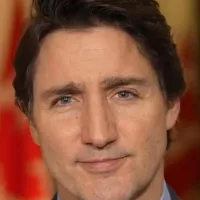
Justin Trudeau served as the rd Prime Minister of Canada...
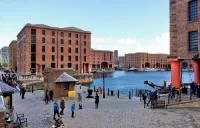
Liverpool is a port city and metropolitan borough located in...
The United States of America is a federal republic located...
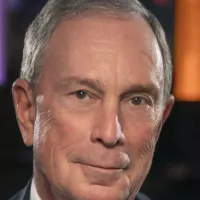
Michael Bloomberg is an American entrepreneur politician and philanthropist He...
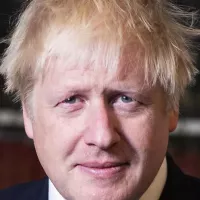
Boris Johnson a British politician and writer served as Prime...
Trending
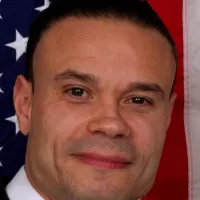
2 months ago Report reveals FBI's internal paralysis; Patel and Bongino defend their tenures.
4 months ago IonQ Stock Surges After Quantum Networking Breakthrough: A Quantum Internet Revolution?

Jackie Robinson was an American professional baseball player who broke Major League Baseball's color barrier on April when he started...

Simu Liu is a Canadian actor best known for his role as Shang-Chi in Marvel's Shang-Chi and the Legend of...
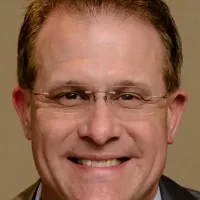
Gus Malzahn is an American college football coach currently the offensive coordinator at Florida State Previously he was the head...

8 months ago Keke Palmer stuns in vintage Versace, Chanel, and mirrored gold platform stilettos.
Popular

Thomas Douglas Homan is an American law enforcement officer who...

William Franklin Graham III commonly known as Franklin Graham is...

Melania Trump a Slovenian-American former model has served as First...

Jupiter is the fifth and largest planet from the Sun...

XXXTentacion born Jahseh Dwayne Ricardo Onfroy was a controversial yet...

Instagram is a photo and video-sharing social networking service owned...
